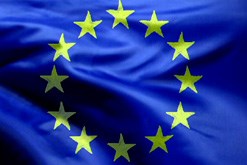


The European Union will provide cash to build high-speed Internet access in the continent's less-developed areas to help set up new businesses and create jobs, the EU's executive arm said on Tuesday.
Wider use of broadband access to the Web is seen by Brussels as a key tool to help start-ups and smaller firms grow, but so far broadband has taken off only in cities.
In a document, the European Commission said it sought to combine tools from its competition, information society, regional and agricultural units to make broadband available to all Europeans. It gave no total figure for the funding.
By the end of 2005, 13 percent of the EU's population of 450 million -- or a quarter of the bloc's households -- were using broadband.
The Commission said state aid or EU funds could be used to correct market failures such as the local population being too small to make some investments profitable.
Broadband speeds are also often lower in the countryside, making it difficult to handle large volumes of data for operating a business or local government, the Commission said.
"In such cases, well-targeted state aid may therefore be appropriate," Competition Commissioner Neelie Kroes said in a statement.
Brussels approved several broadband projects last year that received state aid in Britain, Spain, Austria and Ireland. "But we have to make sure that state aid does not crowd out private initiative, nor distort competition to an extent contrary to the common interest," Kroes said.
EU structural funds could also be used to stimulate investment in broadband networks and services, Regional Policy Commissioner Danuta Huebner said. There is also money available under the EU's rural development policy, the EU executive said.
"The rural development fund is worth 70 billion euros ($85 billion) between 2007-2013, with national funding on top. I urge member states to tap the potential of broadband in their national rural development strategies," Commissioner for Agriculture and Rural Development Mariann Fischer Boel said. (Hina/Reuters)